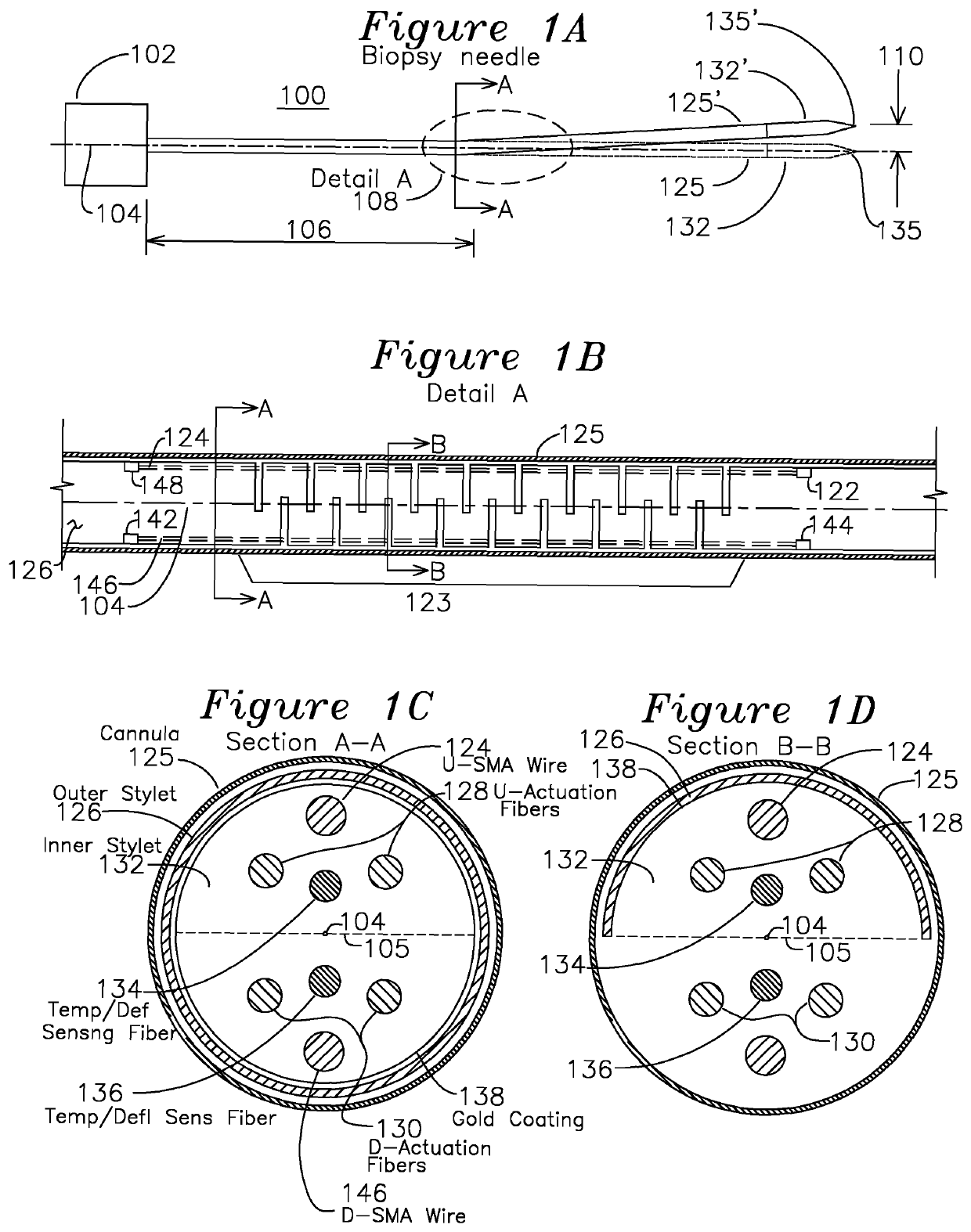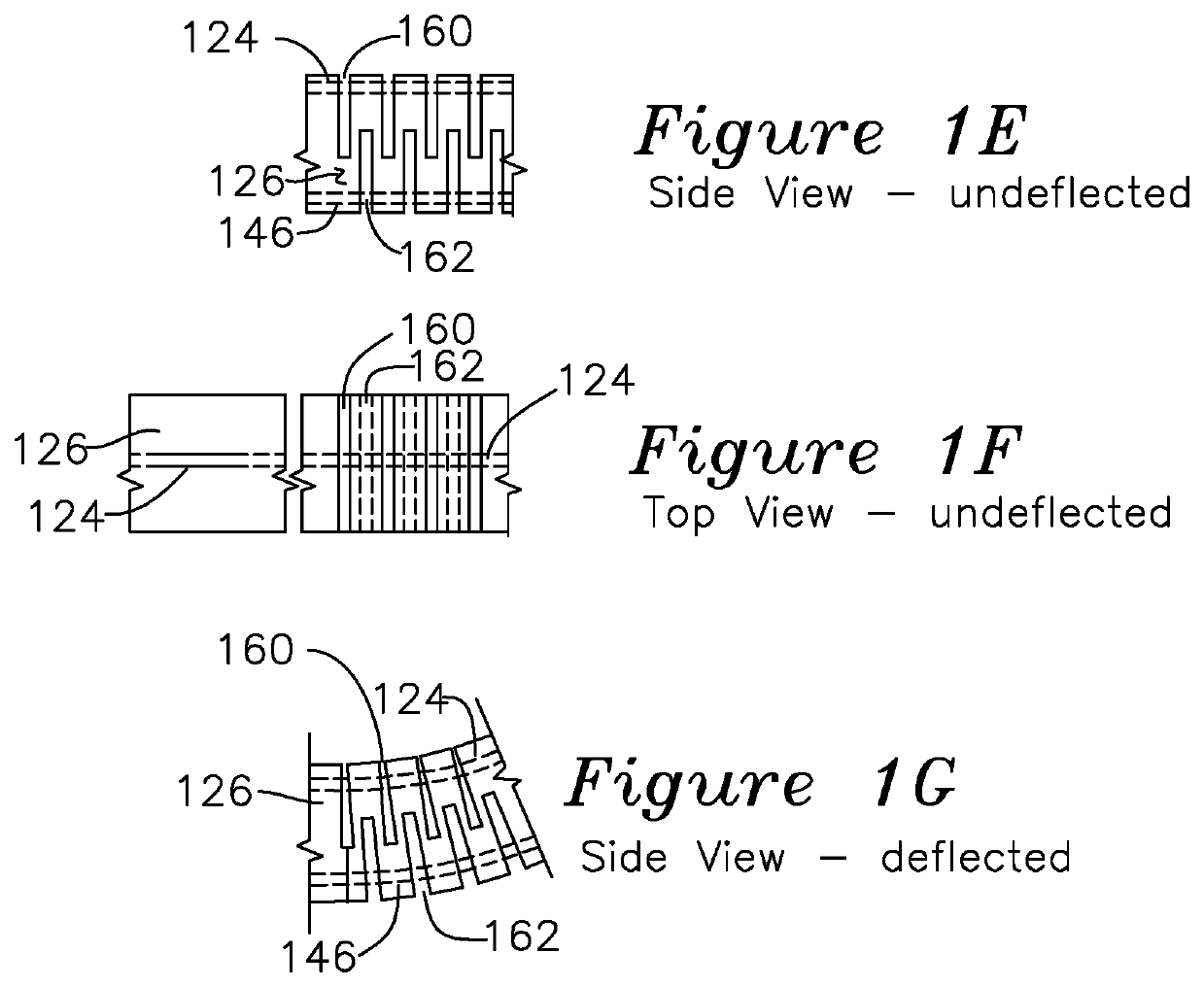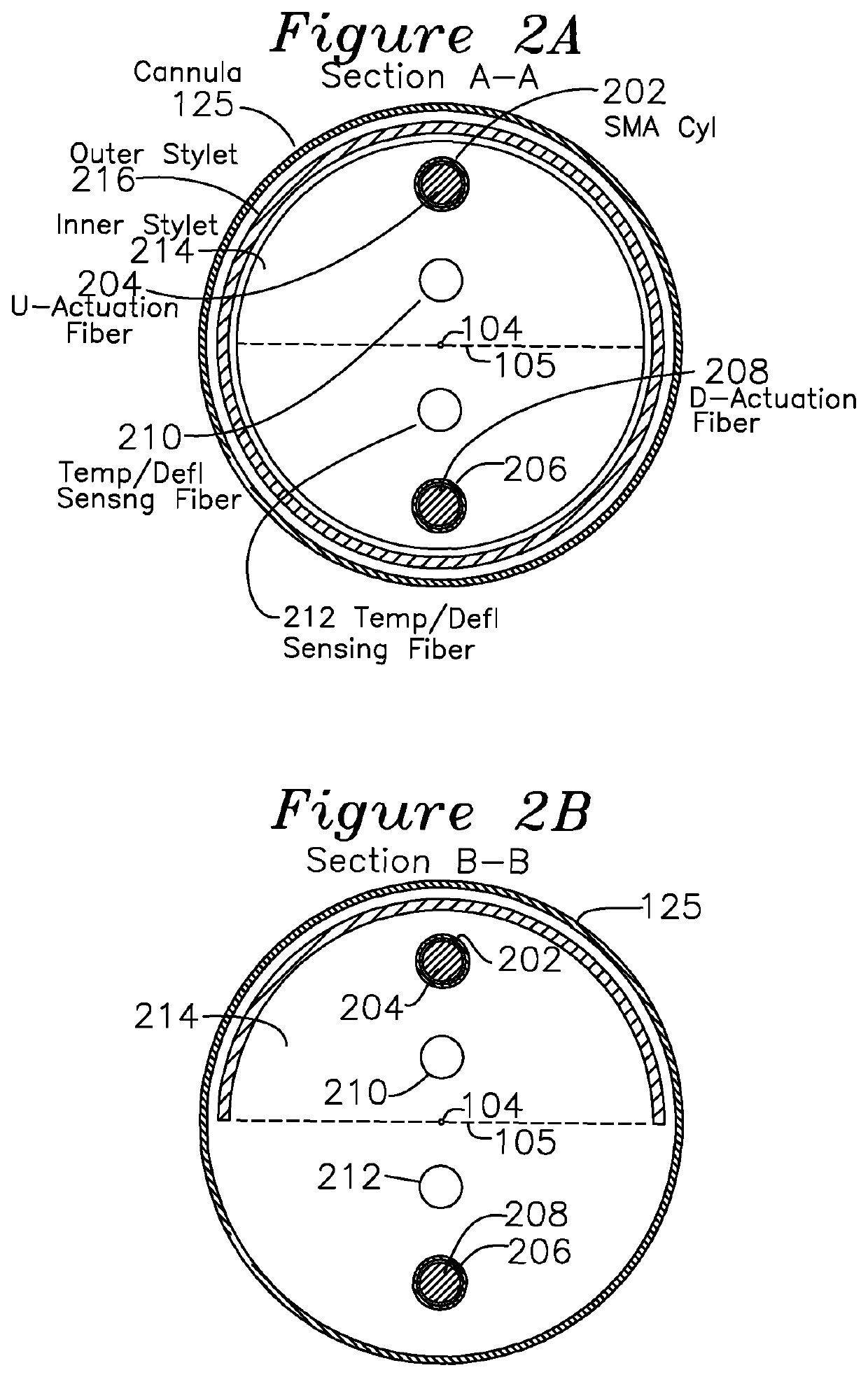Steerable biopsy needle with fiber-activated shape memory alloy
a fiber-activated shape memory alloy and biopsy needle technology, applied in the field of biopsy needles, can solve the problems of limiting the accuracy of such guided biopsy techniques, needle deflection, and limiting the steering strategy, so as to improve the coupling efficiency of optical energy, eliminate the risk of fiber failure, and improve the effect of actuation efficiency
- Summary
- Abstract
- Description
- Claims
- Application Information
AI Technical Summary
Benefits of technology
Problems solved by technology
Method used
Image
Examples
Embodiment Construction
[0033]FIG. 1A shows the active elements of a steerable biopsy needle 100, including a cannula 125 which is optionally covered with a Teflon sheath or tube (not shown) to provide thermal isolation between the surrounding tissues and the thermally activated elements of the needle. FIG. 1A is best understood in combination with detail A FIG. 1B, and section views 1C and 1D. According to a general object of the invention, the needle is steered using an axial asymmetry of internal force which is coupled to the outer stylet 126 of the needle to create forces on the needle during its insertion. In this embodiment, the primary degrees of freedom to control needle direction are the insertion geometry and the axial rotation of the needle. Needles with asymmetric bevels at the tip are submitted to an unbalanced field of forces during the insertion. This phenomenon can be used to steer thin needles. Various complex insertion trajectory curves may be obtained by combining the needle insertion an...
PUM
 Login to View More
Login to View More Abstract
Description
Claims
Application Information
 Login to View More
Login to View More - R&D
- Intellectual Property
- Life Sciences
- Materials
- Tech Scout
- Unparalleled Data Quality
- Higher Quality Content
- 60% Fewer Hallucinations
Browse by: Latest US Patents, China's latest patents, Technical Efficacy Thesaurus, Application Domain, Technology Topic, Popular Technical Reports.
© 2025 PatSnap. All rights reserved.Legal|Privacy policy|Modern Slavery Act Transparency Statement|Sitemap|About US| Contact US: help@patsnap.com



